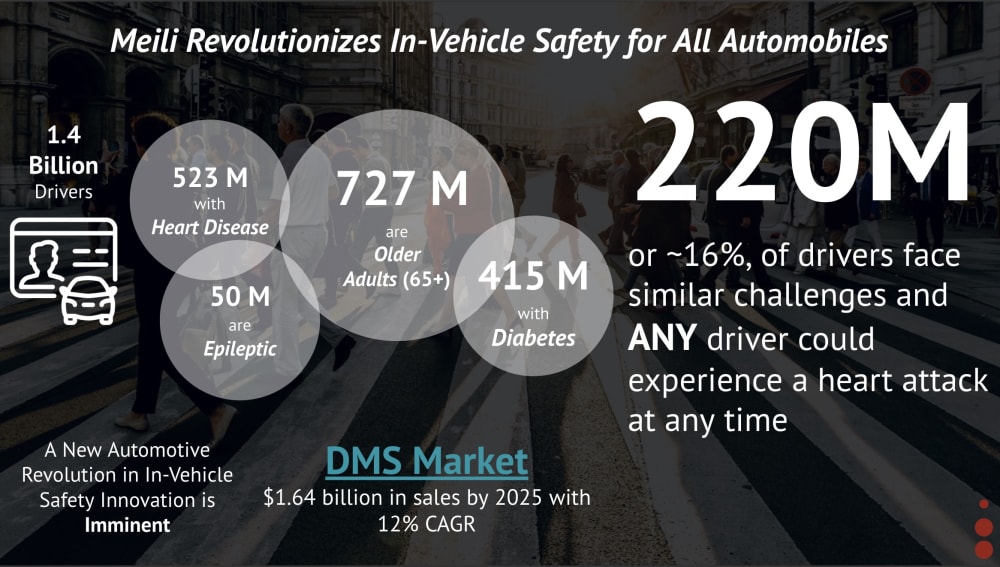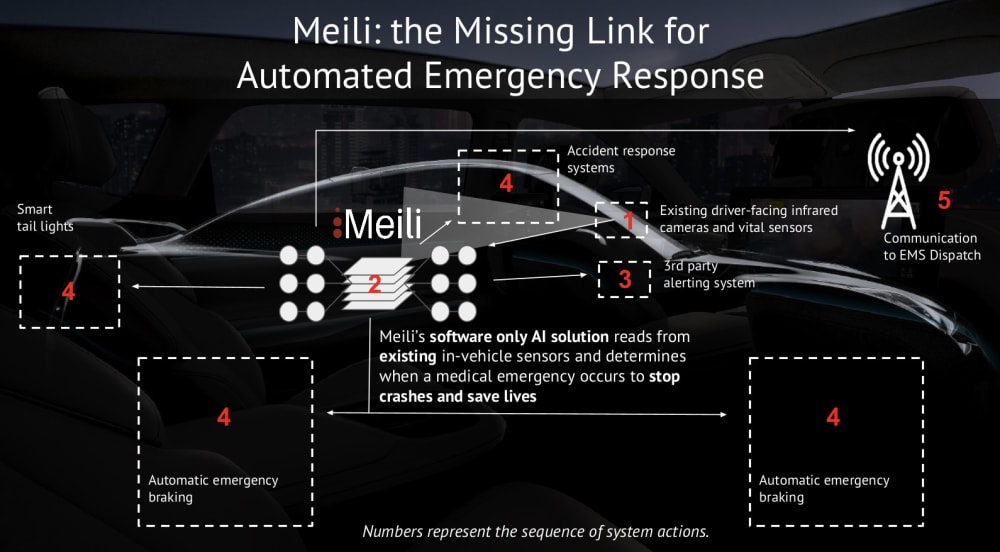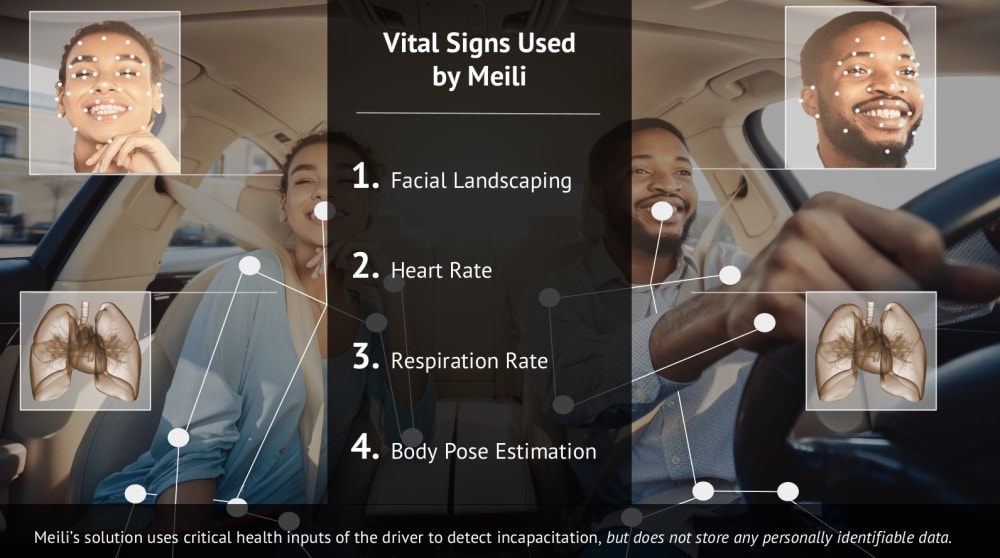

Since the creation of the automobile in 1886, automobiles have been moving towards autonomous operation to increase convenience and safety. It began with the automatic transmission, then the invention of automatic windows, and many more innovations. Today, every major OEM is innovating the next generation of automation, equipped with dozens of autonomous features.
Yet, monitoring the health of the operator, something that should be of the highest priority in autonomous vehicles, has not been a focus area of automotive manufacturers. The present technology lacks occupant monitoring software and hardware that detects medical anomalies in the vehicle cabin and coordinates automatic intervention with emergency medical services (EMS).
Meili Technologies offers the solution. Meili’s Deep Learning Anomaly Detection System is the first of its kind that can actively detect if the operator of the vehicle shows signs of severe health issues while driving. Meili’s software works by monitoring key health metrics, including heart rate, breath rate, facial landscaping points, and body posture to determine if the operator is experiencing a severe health issue. Meili values the privacy of its users and does not use or store the full image of the individual when detecting a medical emergency. Additionally, Meili does not store any personally identifiable data.
Meili’s fundamentally new approach to active driver monitoring will revolutionize in-vehicle safety and will have an immediate impact on the automotive world. Modern vehicles with partially autonomous features already possess the hardware and sensors necessary to support Meili’s System. Therefore, Meili’s algorithm can be deployed without any additional hardware. Over 220 million drivers worldwide face risks of health injuries while operating a vehicle. The ability to detect when a health anomaly is occurring, safely stop the vehicle, and notify emergency responders with time-critical medical information would allow these 220 million individuals the ability to safely and confidently operate their vehicles. Globally this market consists of 1 billion+ drivers. In addition to strong interest from automotive manufacturers for individually owned cars, operators of commercial vehicles such as delivery trucks, rental cars, and taxis would also want to equip their fleets with such a safety feature.
Meili actively monitors the driver, implementing its algorithm to detect a medical emergency. If Meili detects typical indicators of an incapacitated driver, a message will be displayed on the infotainment screen asking the driver to respond by dismissing the alert. If the driver does not respond, Meili will then direct the vehicle to take action including, safely stopping the vehicle, turning on hazard lights, and contacting emergency services with relevant emergency information. As vehicle capabilities reach level 5 autonomy, Meili’s goal is to redirect the vehicle to a nearby emergency room.
Meili filed its provisional patent and aims to gain FDA approval in the coming year. Additionally, Meili has begun partnerships with fleet management companies and auto manufacturers to pilot Meili’s solution. There is a clear and present need within the transportation industry; Meili Technologies offers the solution to change the way in which society benefits from safety within vehicles.
Video
-
Awards
-
 2022 Automotive/Transportation Honorable Mention
2022 Automotive/Transportation Honorable Mention -
 2022 Top 100 Entries
2022 Top 100 Entries
Like this entry?
-
About the Entrant
- Name:John Defelice
- Type of entry:teamTeam members:John DeFelice, Samantha Lee, Marc Rosenmayr, Makena Kraus
- Software used for this entry:Yes
- Patent status:pending








